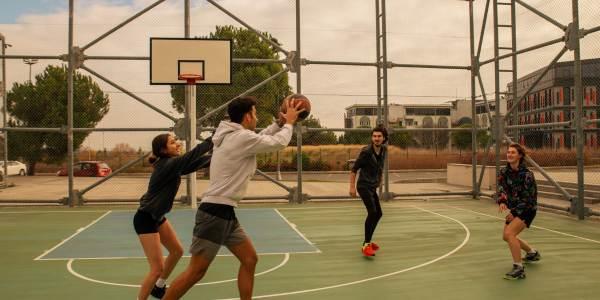Benefits Of Having Fun During Practices and Games
Creating fun for kids is an important focus for Kevin Hoover, CEO of Rally Day Camps and an owner of youth baseball and softball camps for major league baseball teams like the San Francisco Giants and San Diego Padres.
“Fun and safety are key components. Even at the highest levels, we’re just big believers that it has to start with fun,” he said during an interview with our Ultimate Sports Parent podcast.
His programs revolve around silly games and fun competitions…
“We find that kids learn best oftentimes when they don’t realize that they’re learning,” Hoover said
For example, when teaching young kids how to throw a baseball, coaches place a batting tee in front of the kids with a mini teddy bear on it.
“We can teach them while they’re excited about making that bear go flying through the air,” Hoover said. When coaches teach hitting, the coaches place hula hoops on the field and give kids points for hitting the ball into different colored hoops.
As the young athletes get older, they get excited about keeping score and tracking points.
“It’s an important lesson in life because the reality in life, whether it’s in athletics or academics or work, is that there’s some days you win and some days you lose and some days you’re in the middle,” Hoover said.
But the coaches don’t just give points for physical success. They also reward mental game attributes, including hustling and being good team players. The rewards might include stickers or trading cards.
And when kids are quick to support one another, they also earn rewards. A sports kid who jumps off the bench to pump up another player who strikes out will be rewarded.
“It’s not just oriented around the success on the field or the success on the court, but it’s oriented around the success of the kid’s character,” Hoover said.
Hoover acknowledged that focusing on competitions and rewards may create pressure. But he believes that this kind of pressure is good practice for the kind of pressure sports kids will experience later on in life.
Hoover’s coaches also try to keep kids focused on the moment while encouraging competition.
“I think that it’s kind of a conflict of interest in some ways, encouraging competition and then also trying to keep them focused on the moment,” he said.
To strike a balance, coaches often take breaks during games to pause and reset kids’ focus so that they’ll stay more in the moment.
The coaches also celebrate failure. The program aims to teach kids that they can learn from failure.
Overall, Hoover’s focus on creating fun and engaging sports kids translates to other areas of the players’ lives, he said.
“I think that children who have fun in a camp or sports environment probably seek that out in other parts of their lives because it’s a good euphoric feeling to enjoy something that you’re working hard at,” he said.
Related Articles on Kids’ Mental Game:
- Helping Young Athletes Have More Fun
- Helping Young Athletes to Play Functionally
- Should Parents Only Focus on Fun in Youth Sports?
*Subscribe to The Sports Psychology Podcast on iTunes
*Subscribe to The Sports Psychology Podcast on Spotify
Improve Your Mental Game From Anywhere In The World

We’re certain that, as a parent, you want to help your child develop confidence and discipline in sports and life. And as a sports parent, you’d love for your children to reach their potential in sports. But encouraging your child to strive for greatness without pressuring them can be a challenge.
You can get expert mental coaching with us from anywhere. Meet with us via Zoom, Skype, FaceTime or phone call. With today’s video technology, we are able to connect with athletes and coaches all over the globe.
Call Us Today to Schedule Your Free 15-Minute Session.
Find Out How Your Athlete Can Benefit From One-on-One Mental Coaching

